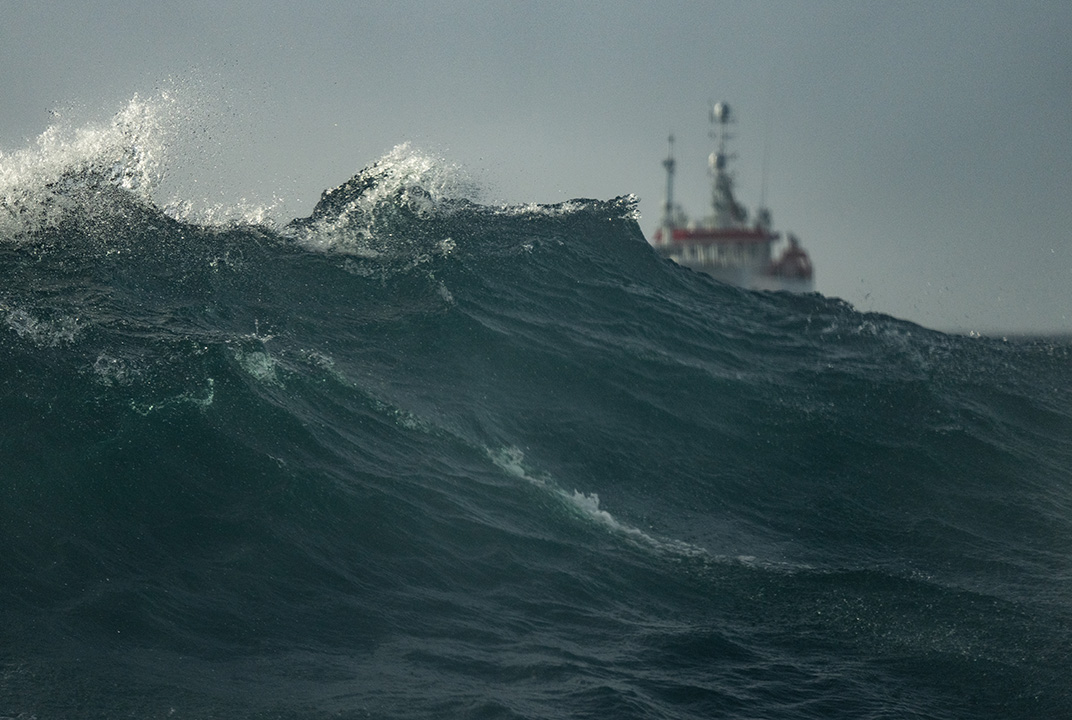Insight | Inmarsat is committed to safety at sea – without compromise
Inmarsat is committed to safety at sea – without compromise
null
Safety is in our DNA. Inmarsat was set up by the International Maritime Organization (IMO) in 1979 to deliver satellite communications that vessels could rely on in the last resort, and nearly 40 years on we continue to work tirelessly to protect the lives of some 1.5 million seafarers.
Every day, six vessels around the world send out distress alerts or calls via Inmarsat and are connected to the rescue authorities. Every month, 30,000 Maritime Safety Information (MSI) and Search and Rescue (SAR) messages are broadcast via our international SafetyNET system, warning vessels of danger and requesting their assistance when a nearby ship is in distress.
GMDSS international safety system
This all happens without fail because, ever since the introduction of the Global Maritime Distress and Safety System (GMDSS) in 1992, Inmarsat has met and even exceeded the stringent network and service availability regulations set out by the IMO – the only satellite operator to do so.
The GMDSS is an international safety system which uses satellite and terrestrial technology and ship-board radio systems to prevent accidents from happening and to automatically alert the rescue authorities and nearby vessels quickly when an emergency does occur.
Under the Safety of Life at Sea (SOLAS) convention, no cargo ships of 300GRT and upwards or passenger ships on international voyages can set sail without GMDSS-approved equipment on board – the satellite element being provided by our Inmarsat C and Fleet 77 services.
IMO formal approval
Our commitment to innovation and development of our L-band satellite offering has seen the introduction of ever-faster voice and data services since the inception of the GMDSS. We are immensely proud that, as part of the modernisation of the GMDSS for the digital age, the IMO is currently considering giving formal approval to FleetBroadband and Fleet One.
FleetBroadband is now the satellite service of choice of some 50,000 vessels, and also provides continuous back-up to our new high speed Fleet Xpress service. Launched in 2016, Fleet One brings affordable satcoms into the reach of smaller fishing and leisure vessels. Both services are delivered over our global fleet of I-4 satellites, operating in the highly resilient L-band. FleetBroadband has achieved availability surpassing the 99.9 per cent required for GMDSS by the IMO every year since January 2010.
We have already launched FleetBroadband and Fleet One voice safety services for vessels that do not come under SOLAS. This gives smaller merchant, fishing, and leisure vessel owners and crew – and their loved ones – peace of mind, knowing they can call for help no matter where in the world they are or how bad the weather conditions. The 505 Emergency Calling facility means they need only dial ‘505’ on their satellite terminal handset to be put directly through to a Maritime Rescue Coordination Centre (MRCC). They can also access Urgency Priority, a two-digit code for medical advice or assistance. In addition, some manufacturers’ terminals support Voice Distress – where the call has priority and pre-emption over any other calls on the Inmarsat satellite network.
Our development of a new Maritime Safety Terminal and SafetyNET II – our new generation international system for broadcasting and automatic reception of Maritime Safety Information (MSI) and Search and Rescue (SAR) communications, which is crucial to the updated GMDSS – shows our commitment to safety without compromise is as strong today as it has ever been.
About the author
Peter Broadhurst is responsible for the development of Inmarsat’s safety and security services. He defines the strategy, development and evolution of Inmarsat’s satellite communication services for maritime safety, navigation, safety of life at sea and data security.
Peter started his career at Inmarsat in 2014 as Vice President of Service Delivery for the Maritime Business Unit and was instrumental in the launch of Inmarsat’s high-speed broadband service Fleet Xpress in March 2016. With over 25 years’ experience in the maritime industry, Peter began his career at sea as a Radio Officer.


